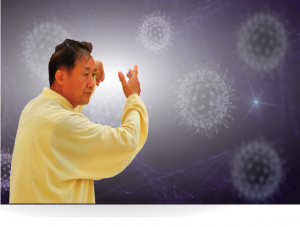 Fan Feng, M.D., Ph.D.,1 Sylvie Tuchman, B.A.,2 John W. Denninger, M.D., Ph.D.,1 Gregory L. Fricchione, M.D.,1 and Albert Yeung, M.D., Sc.D.1,2,⁎
Fan Feng, M.D., Ph.D.,1 Sylvie Tuchman, B.A.,2 John W. Denninger, M.D., Ph.D.,1 Gregory L. Fricchione, M.D.,1 and Albert Yeung, M.D., Sc.D.1,2,⁎
The American Journal of Geriatric Psychiatry
(May 2020)
Abstract
The elderly are at high risk of contracting respiratory infectious diseases, including COVID-19 infection. The recent pandemic has the potential to cause significant physical and mental damage in older adults. Similarly to other mind-body exercises in Traditional Chinese medicine, Qigong features regulation of breath rhythm and pattern, body movement and posture, and meditation. Given these traits, Qigong has the potential to play a role in the prevention, treatment, and rehabilitation of respiratory infections, such as COVID-19. Potential mechanisms of action include stress reduction, emotion regulation, strengthening of respiratory muscles, reduction of inflammation, and enhanced immune function. Three forms of Qigong; abdominal breathing, Ba Duan Jin and Liu Zi Jue, all of which are gentle, smooth, and simple for the elderly to practice, are recommended in this context.

